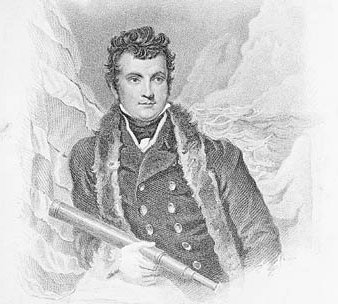
Wintering in the Canadian Arctic in 1822, Capt. W.E. Parry made a series of experiments to see whether cold affects the velocity of sound. He marked a line of 5,645 feet on the sea ice, put a six-pounder gun at one end, and stood with a second observer at the other end. The gun fired 15 blank charges, and the observers timed the interval between each flash and its report. Generally they got good results, giving a mean velocity of 1,023 feet per second. But, writes Mr. Fisher:
The Experiments on the 9th February, 1822, were attended with a singular circumstance, which was–the officers’ word of command ‘fire,’ was several times distinctly heard both by Captain Parry and myself, about one beat of the chronometer [half a second] after the report of the gun; from which it would appear, that the velocity of sound depended in some measure upon its intensity.
“The word ‘fire’ was never heard during any of the other experiments; upon this occasion the night was calm and clear, the thermometer 25° below zero, the barometer 28.84 inches, which was lower than it had ever been observed before at Winter Island.” The phenomenon, whatever it was, has never been observed elsewhere, but Parry noted another acoustic oddity on his next voyage.
